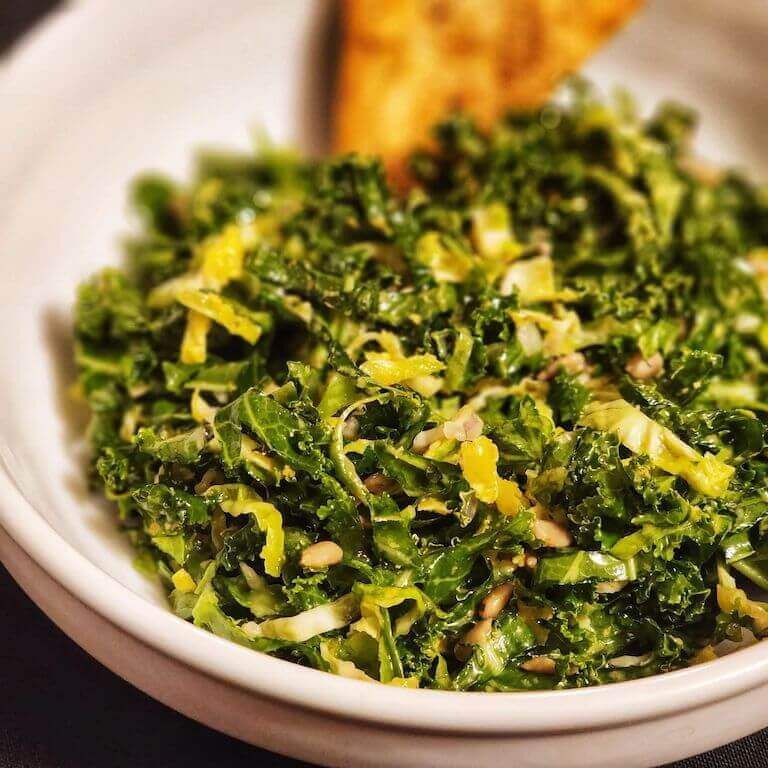Are you the type of person who is always reading nutrition labels, thinking up clever ways to pack more veggies into your everyday meals, or giving advice to friends and family about living a healthier lifestyle? If so, you may have the makings of a nutritionist or holistic nutritionist.
These healthcare practitioners coach their clients towards diet and lifestyle changes that may promote better health. Holistic nutritionists may also make recommendations for “whole body” wellness, like getting better sleep, incorporating more exercise, and reducing stress for a healthier overall lifestyle.
While you may have the dream in mind, you could also be a busy person. You may be raising a family, or you may be working full-time. So how long can it take to achieve your goal of becoming a nutritionist?
How Long Can It Take to Become a Nutritionist?
The timeframe for becoming a nutritionist depends both on the individual and on the state or country where you plan to practice. In the United States, nutritionists are regulated at the state level, and each state has different requirements regarding education, experience, and certification.
In some states, you can provide dietary counseling without any particular nutritionist education or certification (although it isn’t recommended to offer nutrition services without an education and some experience in the field). In other states, you must be licensed in order to practice.
For example, in the state of Florida, nutritionists, dietitians, and nutrition counselors must be licensed.** To earn a license, applicants must complete a bachelor’s degree with a major in human nutrition, dietetics, food and nutrition, or a similar course of study. That usually takes around four years. Then, the applicant needs to complete at least 900 hours of supervised work under a licensed dietitian or nutritionist. If the aspiring nutritionist works in the field full-time, that could take a minimum of six months.
Finally, the applicant has to pass the Certified Nutrition Specialist exam by the Board for Certification of Nutrition Specialists, or the Registered Dietitian exam by the Commission on Dietetic Registration. In short—it could take four to five years to get a nutritionist certification in the state of Florida, or more if you attend school and complete your experience requirements part-time.

In some states, aspiring nutritionists must work under the supervision of a licensed nutritionist before they can become licensed themselves.
On the other hand, the state of Arkansas does not prohibit providing nutrition care without a license, as long as you’re not calling yourself a “dietitian,” “licensed dietitian”, or “provisional licensed dietitian.”** Without a requirement for a bachelor’s degree, hundreds of hours of experience, and passing exams, a much shorter timeline could be in the cards for residents and practitioners in the state of Arkansas. Some education programs can be completed in less than two years, allowing graduates to start practicing much more quickly.
To find the rules for your state, visit the American Nutritionist Associate website.**
How Long Can It Take to Become a Nutritionist?
There are degrees and diplomas in nutrition and wellness offered at many postsecondary levels.
In states that don’t require a bachelor’s degree or higher, students may choose to complete an associate degree or diploma program, like those offered at Auguste Escoffier School of Culinary Arts. These programs usually take less than two years to complete, and they can be taken entirely online with an in-person industry externship.
Students may be asked to do assigned readings, watch videos, and participate in live class sessions. When it’s time to get into the kitchen, students may complete cooking assignments from home, documenting the process as they go with a written production sheet and photos of their progress.

A kale & brussels sprouts salad with zesty vinaigrette, toasted sunflower seeds, and nutritional yeast by holistic nutrition student Chelsea S.
At Escoffier, online students may receive their Diploma in Holistic Nutrition and Wellness in as little as 60 weeks, or their Associate of Occupational Studies Degree in Holistic Nutrition and Wellness in about 84 weeks).
If you live in a state that requires further education in order to practice, you may need to complete a four-year bachelor’s degree program. And in the few states that require a master’s degree, it can take around six years to earn (four for undergraduate school and two for the master’s program).
Nutritionist Certificate vs. Nutritionist Certification
- A “certificate” and a “certification” sound like the same thing, but they’re not! A certificate usually indicates that you’ve completed a certain program. For example, some schools may offer a certificate to their students when they complete a non-degree granting program.
- A certification, on the other hand, is usually offered by a board-certified licensing body. You won’t be a certified nutritionist unless you get a formal credential from a regulated professional organization in your state or country. For example, you could get board certified in holistic nutrition from the National Association of Nutrition Professionals (NANP) in order to call yourself a certified holistic nutritionist. Simply going to school isn’t enough! To find out how to become a certified nutritionist, look for the specific rules in your state and/or country.
Is It Worth the Time and Financial Commitment to Become a Nutritionist?
This is a question each individual must answer for themselves. But here is some helpful information that may help you decide.
- The job outlook for nutritionists and dietitians is good, with the industry expected to grow by about 7% between 2021 and 2031. That growth tracks with the rest of the overall job market growth in the United States.
- The median pay for nutritionists in 2021 was $61,650. While no one can anticipate how much any individual nutritionist will earn, it is on average a well-paying field.*
- According to information gathered by U.S. News, working as a dietitian or nutritionist is #76 on their list of the 100 Best Jobs, and #21 in Best Health Care Jobs. People in the field report average upward mobility, average stress levels, and above-average flexibility.
So if you want to work in a growing field that pays well and offers a flexible work environment—and you’re passionate about helping people improve their health—becoming a nutritionist could certainly be worth a couple of years of school!

Dietitian or nutritionist is ranked #76 on the U.S. News list of 100 Best Jobs.
“[At Escoffier, w]e teach classical culinary techniques alongside foundational nutrition information and integrative approaches to wellness. We also discuss fundamental coaching techniques [students] may use to assist others in navigating their wellness journey. Learning these skills can help students pursue multiple avenues relevant to health and wellness, [including] being a part of a culinary team that creates dishes for organizations looking to nourish their employees/customers, community food education programs, coaching, and health [education].”*
Stephanie Michalak White, Escoffier Lead Holistic Nutrition & Wellness Chef Instructor
Where Will You Be in Two, Four, or Six Years?
Looking down the road at a two-year, four-year, or even six-year path to achieve your goal of becoming a nutritionist can be daunting. It’s a significant time commitment, to be sure, as well as a financial commitment.
But look at it this way: in four years, you’ll be four years older, no matter how you spent your time. Would you rather be stuck in the same place you are now? Or would you rather be embarking on a new career that makes you excited to get out of bed every morning?
If it’s the latter, Escoffier may be able to help. Contact us to learn more about degrees and diplomas in holistic nutrition and wellness at Escoffier.
To learn more about health and nutrition coaching, try these articles next:
- What Is Holistic Health?
- What Does a Holistic Health Practitioner Do?
- How to Start a Career in Holistic Health
*Information may not reflect every student’s experience. Results and outcomes may be based on several factors, such as geographical region or previous experience.
**State laws and licensing requirements are subject to change at any time. Always consult your state’s current laws before embarking on any new business venture, including working as a nutritionist.

 “[At Escoffier, w]e teach classical culinary techniques alongside foundational nutrition information and integrative approaches to wellness. We also discuss fundamental coaching techniques [students] may use to assist others in navigating their wellness journey. Learning these skills can help students pursue multiple avenues relevant to health and wellness, [including] being a part of a culinary team that creates dishes for organizations looking to nourish their employees/customers, community food education programs, coaching, and health [education].”*
“[At Escoffier, w]e teach classical culinary techniques alongside foundational nutrition information and integrative approaches to wellness. We also discuss fundamental coaching techniques [students] may use to assist others in navigating their wellness journey. Learning these skills can help students pursue multiple avenues relevant to health and wellness, [including] being a part of a culinary team that creates dishes for organizations looking to nourish their employees/customers, community food education programs, coaching, and health [education].”*

